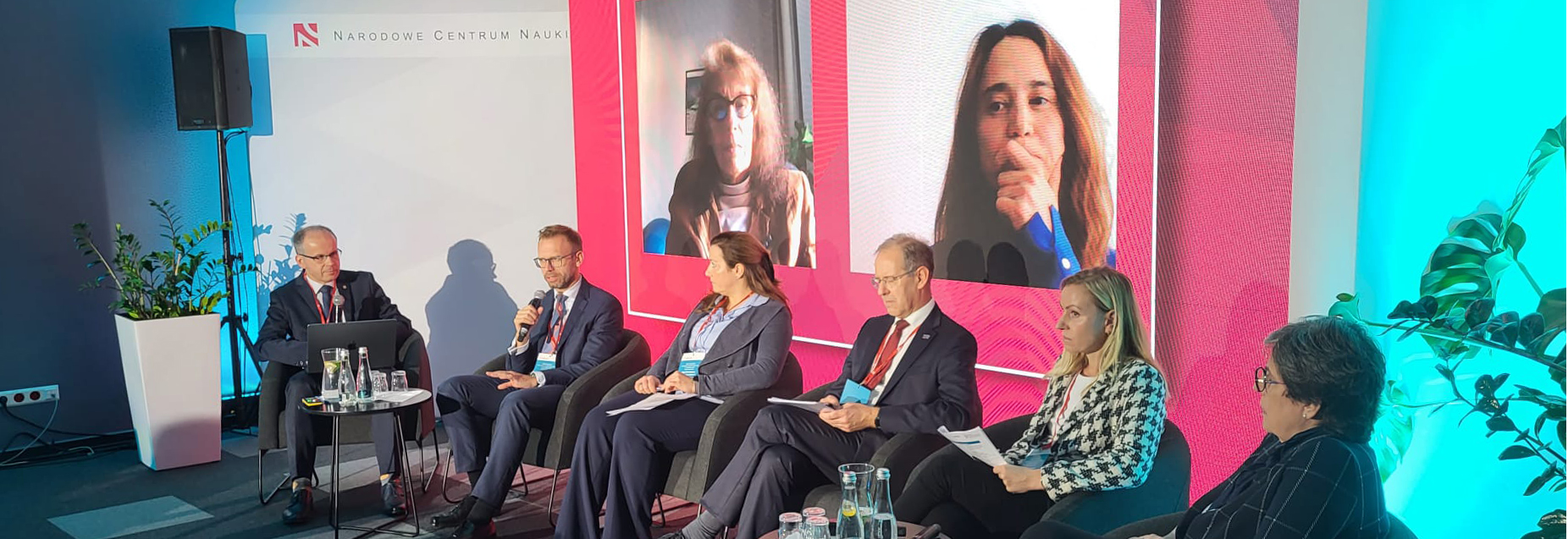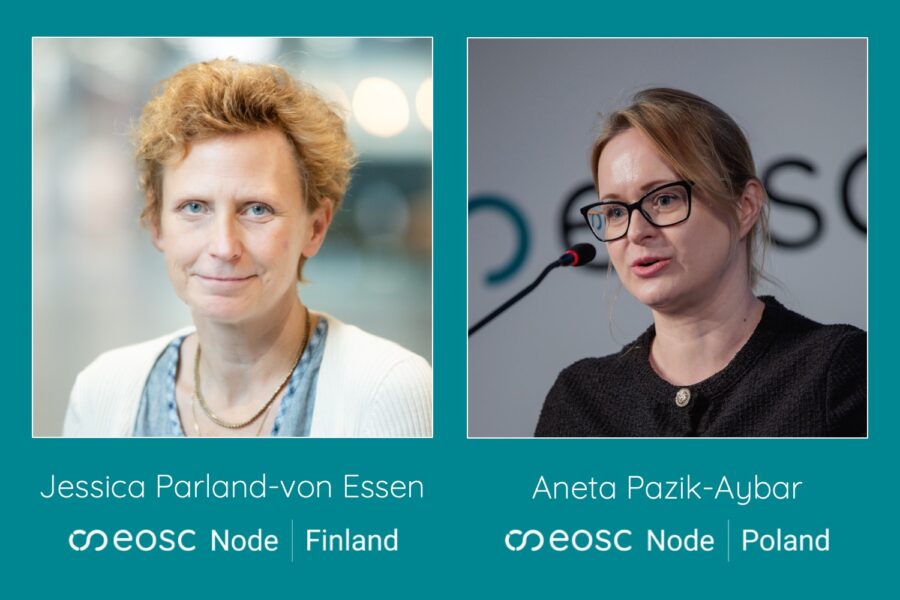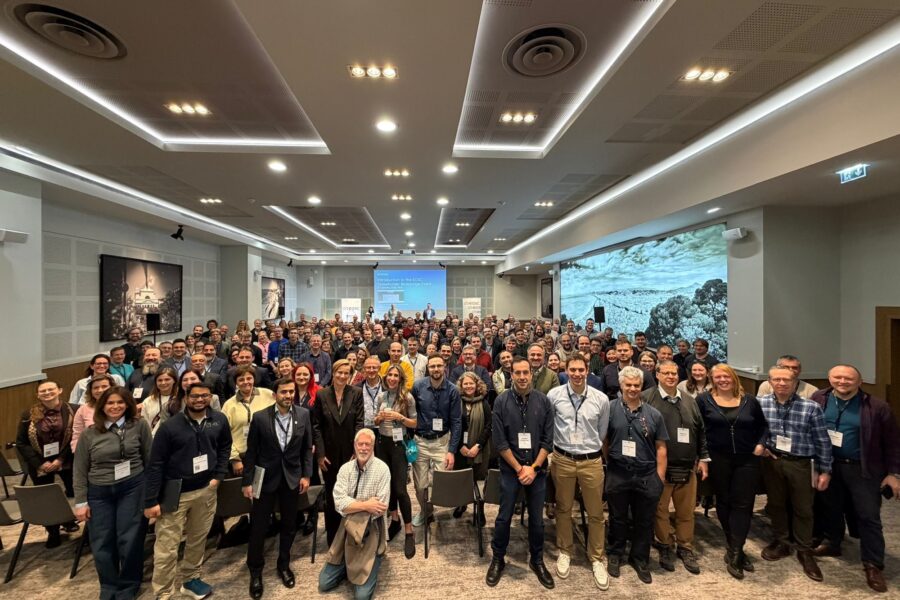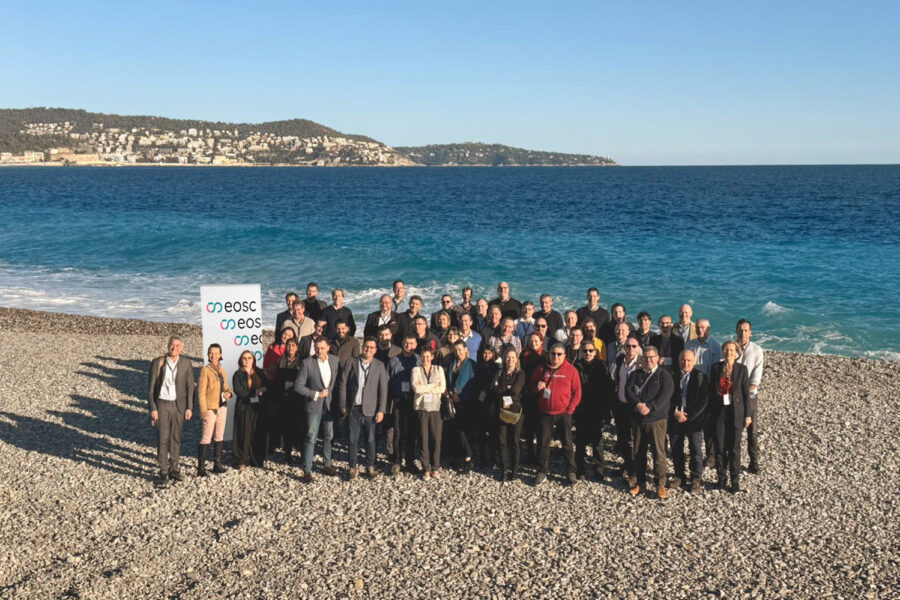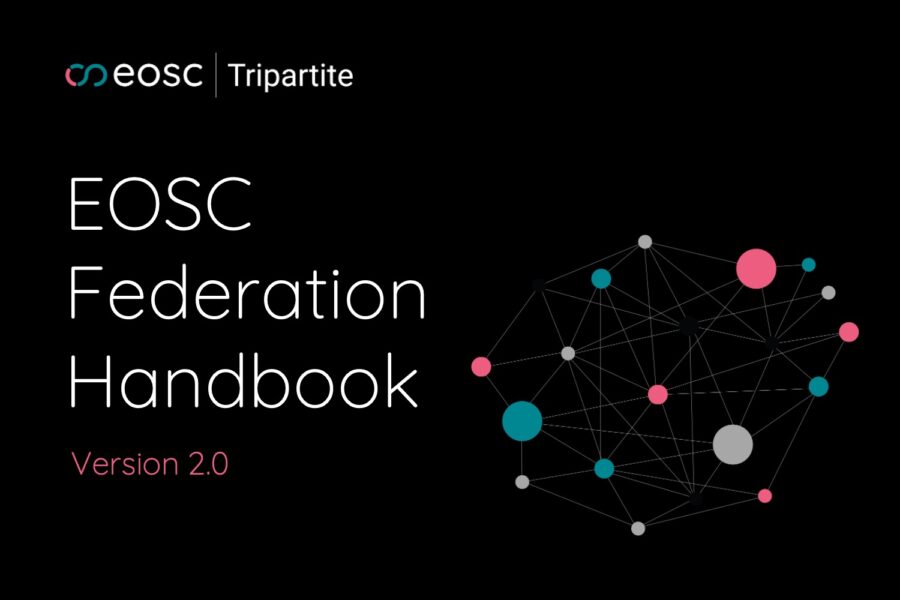KRAKOW — The second National Tripartite Event in Poland was held as part of Poland’s EOSC Festival 2023 on 6-7 November at Poland’s National Science Centre.
The event welcomed representatives from European entities, including Bertil Egger Beck from the European Commission’s DG Research and Innovation (DG RTD), Volker Beckmann, French delegate to the EOSC Steering Board (EOSC-SB), and Karel Luyben, President of the EOSC Association (EOSC-A). The hosting government was represented by Mateusz Gaczyński from the Polish Ministry of Education and Science. In total there were over 40 contributors, including speakers, panellists and moderators, 50 additional in-person participants, and 208 online participants.
The diverse agenda addressed critical issues related to Open Science (OS) policymaking and implementation, along with the question of how to enhance EOSC structures in EU-designated Widening Countries. Presenters included distinguished guest speakers and contributors from 13 countries, including Bulgaria, Croatia, Czech Republic, Georgia, Lithuania, Malta, North Macedonia, Serbia, Slovakia, Romania, Ukraine, and Poland. The representatives of the Polish Ministry of Education and Science, along with 19 Polish stakeholders participating in the EOSC Festival, demonstrated their long-term commitment to building and developing EOSC infrastructures, services, and skills in Poland in order to establish a mature and fully operational EOSC national structure.
European, national and institutional stakeholders
Policy stakeholders emphasised the need for continuous engagement in EOSC at different levels. The EC’s Bertil Egger Beck stated, “We are aiming for OS to become a new normal in the EU.” His presentation highlighted the ongoing efforts required to achieve OS objectives.
Mateusz Gaczyński acknowledged the progressively increasing engagement of Polish stakeholders, stating: “The more we do for OS, the more it requires from us.” He confirmed Poland’s readiness to “chase” the EOSC goals.
Volker Beckmann emphasised EOSC-SB’s role as guardian of the interests of EU Member States and Associated Countries, particularly through monitoring in order to ensure continuous improvement. He also highlighted the need to support EOSC in the EU’s forthcoming Framework Programme 10.
EOSC-A’s Karel Luyben demonstrated EOSC’s added value in unlocking the full potential of research data for accelerating discoveries and innovations.
The second half of the day took a deep dive into specific Polish OS policy initiatives and the implementation of EOSC in Poland.
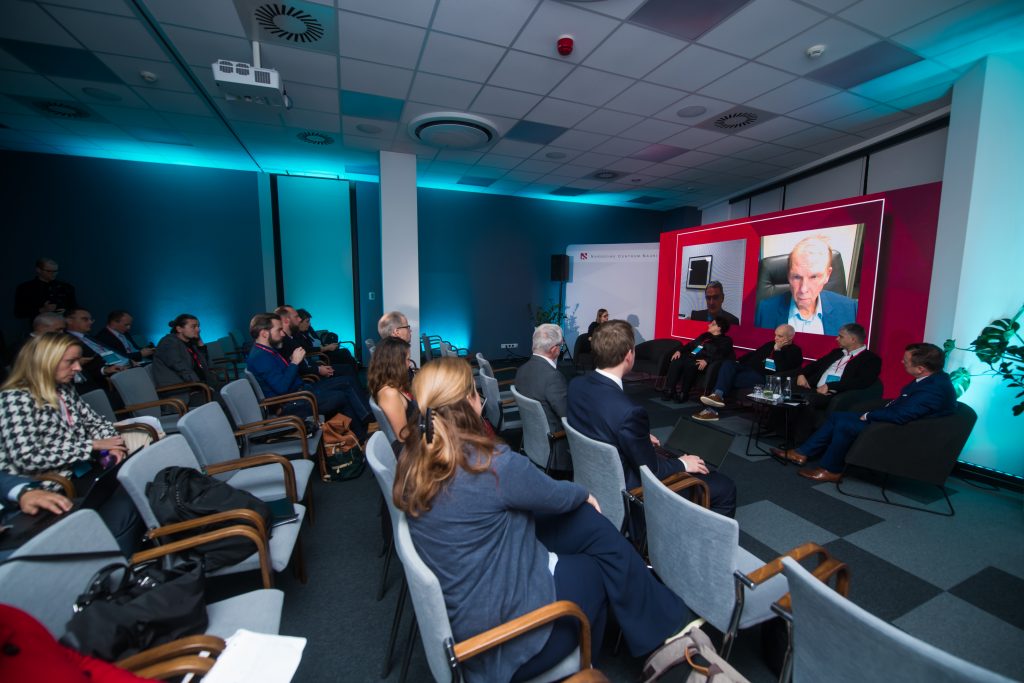
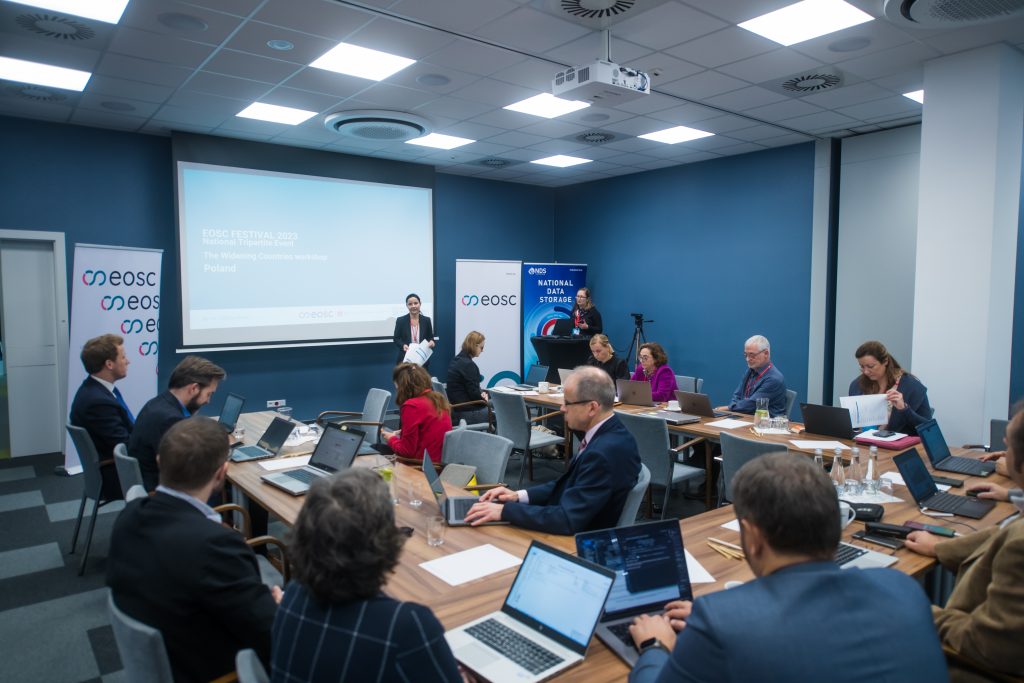


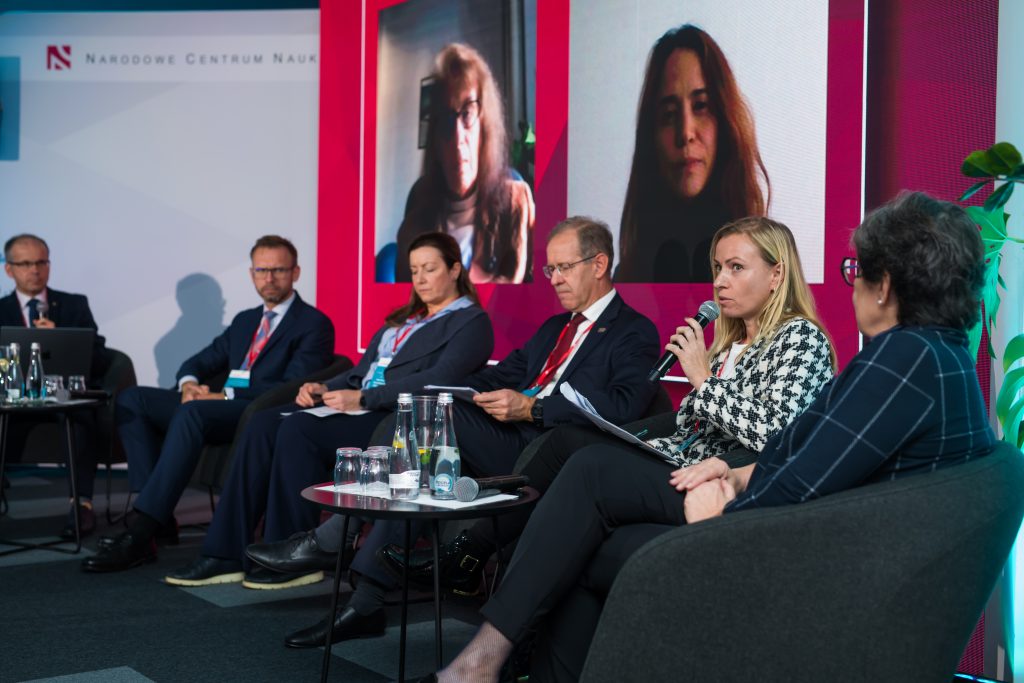
The future of EOSC governance
The speakers representing the three legs of EOSC governance, the so-called Tripartite Collaboration, also provided insights into the potential scenarios under consideration for the future governance of EOSC.
Bertil Egger Beck presented how “the EU node will enable the federation of national nodes,” while Volker Beckman explained the key differences between integrated and hybrid scenarios. Karel Luyben presented the EOSC Association’s perspective on the scenarios being considered, and presented EOSC-A’s proposed model. Which scenarios move forward for further consideration will the subject of the 28 November EOSC Tripartite Event in Madrid.
Addressing the Widening Countries
The meeting’s second day commenced with the EOSC Regional Hub Round Table: Key challenges of EOSC in the Widening Countries, in which 11 stakeholders from the Widening Countries participated. An exploration of Open Science and EOSC-related policies and implementations provided a comprehensive view of models, contexts, and solutions for enriching EOSC landscapes in the Widening Countries. This allowed for the exchange of valuable knowledge and experiences, fostering a more equitable, accessible, and inclusive EOSC environment.
The Widening Countries Round Table was followed by a discussion among 18 Polish stakeholders, as well participants in the EOSC Poland Network, who shared their views and recommendations for EOSC’s advancement in Poland.
The knowledge and expertise brought to the EOSC Festival 2023 significantly contributed to the depth and breadth of discussions and conclusions regarding EOSC policies, their implementations at European and national levels, and the future of EOSC. This meeting aimed to facilitate more effective communication among stakeholders from the Widening Countries, who share context-specific similarities, providing a solid foundation for advanced collaboration in the future.
Acknowledgements
The National Science Centre Poland wishes to express gratitude for the participation of all EOSC Festival contributors: speakers, panellists, moderators, and participants. Your contributions were pivotal in making this event a success.
Stakeholders from the Widening Countries:
Ana Proykova (Sofia University, Faculty of Physics, HPC Laboratory, Bulgaria); Ivan Maric (University Computing Centre (SRCE), University of Zagreb, Croatia), Olga Bohuslavova (Masarykova University CERITSC/Sekretariát EOSC-CZ, Czech Republic), Tatia Mtvarelidze (Ministry of Education and Science of Georgia), Artūras Kaklauskas (Research Council of Lithuania), Ernest Cachia (University of Malta, Department of Computer Information Systems, Malta), Anastas Mishev (University of Ss Cyril and Methodius, Faculty of Computer Science and Engineering, North Macedonia), Alina Irimina (UEFISCDI, Romania), Biljana Kosanovic (University of Belgrade, Serbia), Milica Ševkušić (Open Access Programme, Project Coordinator EIFL – Electronic Information for Libraries, Serbia), Anna Krivjanská (Slovak Centre of Scientific and Technical Information representatives of EOSC TF Upskilling Countries, Slovakia), Volodymyr Nochvai (Virtual Center for Digital Innovation NOSCUA DIH, Open Innovation Lab, Kyiv Academic University, Ukraine), Sergiy Svistunov (Bogolyubov Institute for Theoretical Physics of the National Academy of Science of Ukraine (online)
Stakeholders from the EOSC Poland Network
Dominika Czyzak (Nicolaus Copernicus University in Torun), Dariusz Ignatiuk (Polish Polar Consortium), Mateusz Gaczyński (Ministry of Education and Science, Poland), Tomasz Jałukowicz (SWPS University), Szymon Kubik (Collegium Medicum of Jagiellonian University), Krzysztof Kurowski and Raimundas Tuminauskas (Poznan Supercomputing and Networking Centre, Mariusz Majdański (Institute of Geophysics of Polish Academy of Sciences), Maciej Maryl and Tomasz Umerle (Digital Humanities Centre, the ILR of the Polish Academy of Sciences), Dawid Matuszek and Maciej Bisaga (University of Silesia in Katowice), Marcin Michalak (Łukasiewicz Research Network – Institute of Innovative Technologies EMAG), Jakub Szlachetko (SOLARIS Centre National Synchrotron Radiation Centre, Jagiellonian University), Marcin Pałys (European University Association), Maciej Piasecki (University of Science and Technology in Wroclaw, CLARIN-PL), Jakub Rusakow (Gdansk Medical University), Leszek Szafrański (Jagiellonian University), Jakub Szprot (Interdisciplinary Centre for Mathematical and Computational Modelling University of Warsaw), Roksana Wilk (Cyfronet AGH in Krakow), Anna Zatora (University of Lodz).
The Tripartite Collaboration
Bertil Egger Beck from the European Commission’s DG Research and Innovation (DG RTD), Volker Beckmann, French delegate to the EOSC Steering Board (EOSC-SB), Karel Luyben, President of the EOSC Association (President, EOSC-A) and Isabel Caetano (Senior Stakeholder Engagement and Outreach Officer, EOSC-A).

